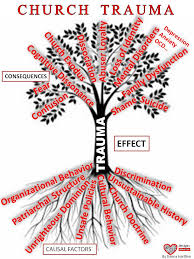Vancouver Men’s Chorus is busy rehearsing for our June concerts. (Tickets are on sale at the chorus website.) This year’s theme is Totally Awesome ’80s. We will be singing songs by Cyndy Lauper, George Michael, Eurythmics, Madonna, Tina Turner, Erasure, Pet Shop Boys, Whitney Houston, and more. There will be synthesizers, dancing boys, and big hair.
I spent the 1980s as a clueless high school student in small town Utah; as an earnest Mormon missionary in Korea; as an overachieving student at Brigham Young University; and as a liberated law student at Yale. I’m like an episode of Stranger Things – 80s music is the soundtrack of my youth.
More than music and mullets, my relationship with the 80s is defined by one essential fact: I came out of the closet in the middle of the AIDS epidemic.
I recently read a collection of essays with the title Between Certain Death and a Possible Future: Queer Writing on Growing Up with the AIDS Crisis. These writers speak for my generation:
Every queer person lives with the trauma of AIDS, and this plays out intergenerationally. Usually we hear about two generations - the first, coming of age in the era of gay liberation, and then watching entire circles of friends die of a mysterious illness as the government did nothing to intervene. And now we hear about younger people growing up with effective treatment and prevention available, unable to comprehend the magnitude of the loss. But there is another generation between these two, one that came of age in the midst of the epidemic with the belief that desire intrinsically led to death, and internalized this trauma as part of becoming queer.
Some people see personality types through the prism of birth order. As the first of four brothers, I exhibit many “eldest child” behaviors. But when it comes to my gay tribe, I’m part of very specific cohort: the traumatized gay boys of Generation X, stumbling through life as perpetual younger brothers to the men of the Stonewall Generation.
I shall miss loving you.I shall miss the comfort of your embrace….I shall miss the joy of your comings,And pain of your goings, and,After a time,I shall miss loving you.
They shall grow not old, as we that are left grow old:Age shall not weary them, nor the years condemn.At the going down of the sun and in the morningWe will remember them.
Some of the men lived.
In 1981, a pioneering national tour by San Francisco Gay Men’s Chorus inspired gay choruses to form in cities including Chicago, New York, Seattle, and Vancouver. Forty-four years later, our founder Willi Zwozdesky still conducts Vancouver Men’s Chorus. Willi is the senior conductor in the LGBT choral movement.
VMC has never sounded better. We continue to attract talented new singers. At our recent rustic retreat, Millennials and Gen Y gay boys joined in the skits, rehearsals, and comradery. We listened to our elders around the campfire, and serenaded our conductor with his favourite song. Along with Willi, a handful of other survivors have held the chorus and the community together through five extraordinary decades.
I am growing old. But the men of the Stonewall generation will always be older than me.


































